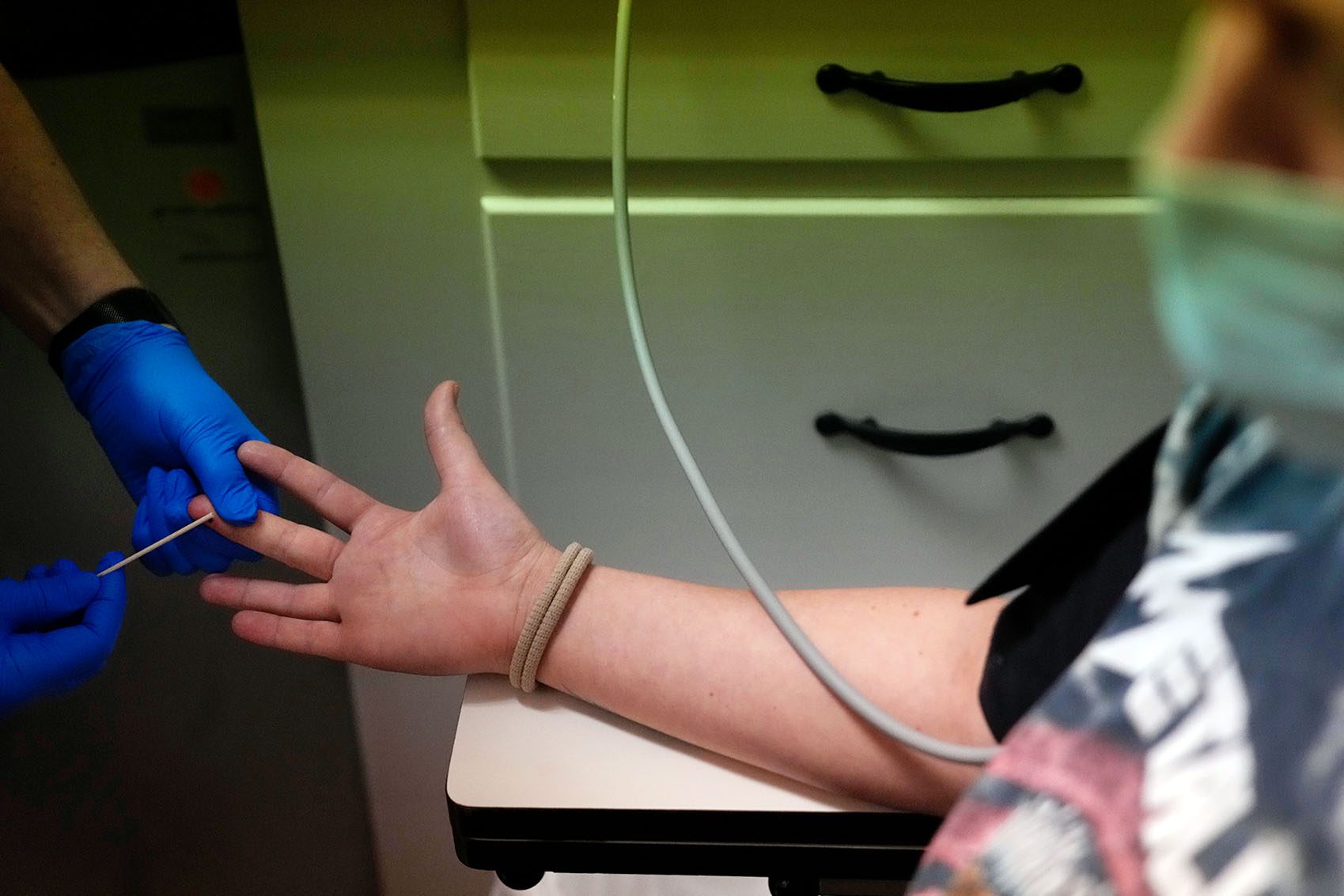Abortion access is being pushed into uncharted territory. As Republican-led states pass an onslaught of new laws restricting access in anticipation of a weakened or overturned Roe v. Wade, the federal government has taken new steps to make medication abortion — the most common method of ending a pregnancy — more available than ever, including through the mail.
That puts into question whether and how people can get an abortion that might be illegal in the state they live, but legal elsewhere.
This summer, the Supreme Court is expected to rule in an abortion case known as Dobbs v. Jackson Women’s Health Organization. Observers believe it will use the case to roll back the standard set by Roe, the 1973 case that guaranteed the right to an abortion. Many states across the country have prepared laws that could, depending on how the court rules, almost or completely end in-state abortions.
Now some are looking further. A Missouri lawmaker recently introduced a provision that would ban traveling out of state for abortions. It’s unclear if the legislation will pass, let alone if it would survive legal challenges. Still, its introduction shows lawmakers are already considering what is likely the next frontier of abortion restrictions: ways to limit access beyond their state borders.
“If you just say abortion is illegal, you’re not going to stop people from getting abortions,” said Mary Ziegler, an abortion law expert at Florida State University. “States are going to have to find other ways of trying to discourage people legally.”
But even that runs into complex legal questions, sparked in no small part by the rising popularity of medication abortions. In response to the COVID-19 emergency, the federal Food and Drug Administration moved in April 2021 to allow the two-pill regimen to be dispensed entirely by telemedicine — a move for which many medical experts had long advocated. This past December, the agency made that change permanent.
That could create a new opening for people to circumvent in-state restrictions. If someone lives in a state that has banned abortions, they could potentially order pills from a medical provider in another state.
“Medication abortion is the existential threat of the anti-abortion movement,” said Greer Donley, an assistant professor at the University of Pittsburgh Law School who specializes in laws surrounding medication abortion access. “When they’re on the precipice of getting the Supreme Court to overturn Roe v. Wade, there’s a technological advance that has made it impossible to control abortions.”
Texas, which is so far the only state that has ended access to abortions after six weeks of pregnancy, provides some insight. The number of Texans receiving abortions has only fallen somewhat — a far larger number of people are now making journeys out of state or ordering medication abortion pills online from the European nonprofit Aid Access, which operates outside the U.S. health care system but has worked to provide Americans with telemedicine-based medication abortions since 2018.
In a post-Roe world, the options would likely look different. With more states banning or severely restricting abortion access, travel likely poses a greater burden, especially for people who live where neighboring states also have legislatures that have restricted access. But health care providers in states where abortion rights are protected could, under the new FDA guidance, could potentially prescribe pills through a phone call or video-chat and mail them to people in other states.
There are accessibility questions. Not everyone has sufficient internet access to find a virtual provider, noted Abigail Aiken, an associate professor at the University of Texas at Austin who has studied the Texas law’s impact on medication abortion requests. And not everyone knows about services like Aid Access or other ways to navigate the health care system and find an out-of-state provider.
The legality of all of this, however, is untested. If someone lives in a state that has banned abortions, can a doctor from somewhere else prescribe and mail that person pills? No experts who spoke with The 19th knew which state would necessarily have jurisdiction, and whether one state would have to comply with a different state’s laws.
“There might be a certain abortion provision that’s legal in one jurisdiction and illegal in another. And that’s complicated when the abortion happens in two states,” Donley said.
Typically, state abortion restrictions focus on penalizing providers and people who help provide abortions, but not the patients themselves. And while state laws could theoretically target providers who live somewhere else, it’s an open legal question as to whether they would be able to actually enforce those laws — especially if the medical provider lived in a state where mailing abortion pills is perfectly legal.
Enforcement is a tricky question, too, Donley noted. There is the question of what happens if a doctor in a state like New York, where the state government has protected abortion rights, mails pills to someone in a state like Mississippi, which has passed a law that would ostensibly ban abortions if Roe is overturned.
Mississippi’s state court could try to penalize the New York doctor. But the doctor may decline to go to Mississippi and show up in court. And it’s unclear if the state of New York would have to act to enforce Mississippi’s law — especially when that law contradicts with what its own government allows.
States do typically work together to support each other’s investigations and to comply with extradition requests. But there is little legal scholarship or precedent about conflicts in state laws and abortion laws that contradict each other, Ziegler noted.
States friendly to abortion rights could also pass laws exempting abortion providers from those extradition agreements, or otherwise protecting them if they provide virtual care for people in other states — though so far, none have done so.
“Thus far blue states have been focused on codifying protections in their own state and haven’t caught onto the fact that there’s going to be interstate conflict,” Ziegler said. “You’d think they would do that, but they haven’t yet.”






